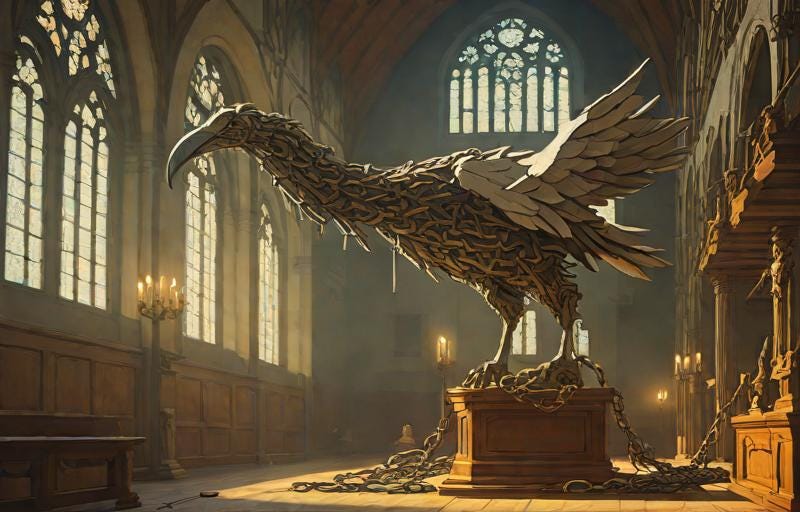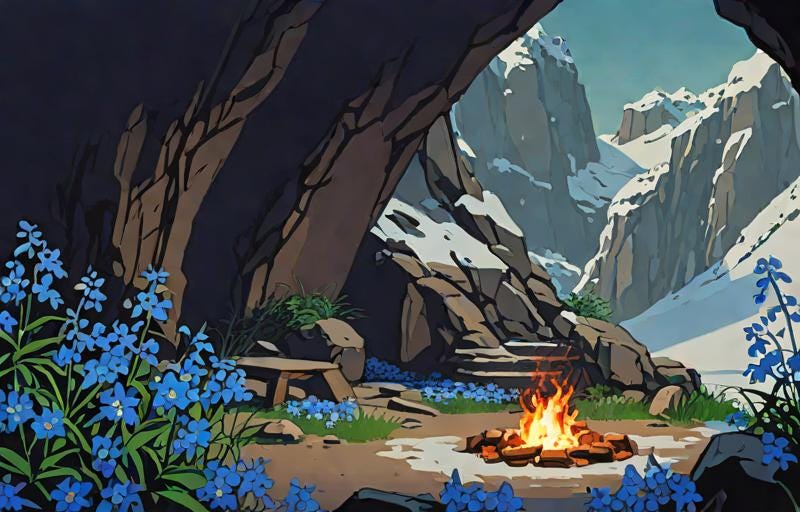Five Generations
When a memory becomes a tradition
Hey! What’s the oldest story told in your family?
For some of you it may be a recipe your grandma says her mother taught her. For others perhaps it’s a song one of your uncles made all the cousins learn. I imagine the answer will be vastly different depending on who you ask, even within your own family.
The biggest divider being that generational line and the years it vaguely defines.
Lost Legacy
Through very nonacademic and less-than-rigorous study, I have come to a soft conclusion that human familial memory only goes back about five generations. Five generations of stories that define the family and are retold with living relatives.
Anything beyond that can continue as cultural memory (or better said tradition), but enters the realm of myths and legends. No more living witnesses to ignite a passion closer to our still-beating hearts.
That also means legacy is destined to be lost—or at least destined to become detached from the voice and the face that so badly wanted it remembered.
An impression of the lessons can persist though. Stories that live within us as they are passed down the bloodline. We see this most emphatically in the epics of eld that we still know today.
As another pertinent example from antiquity, Socrates famously never wrote anything down. He thought such records were useless and people should simply remember and rediscover ideas.
The great irony being we only know what he said because Plato wrote down his words.
However, in his time I imagine his stance made a bit more sense. Oral traditions were still thriving, and the Iliad and the Odyssey were performances for the stage more than stuffy books on shelves.
And while I don’t deny the merit of recording history, I think we downplay the role of stories as experiences in the modern world.
Legitimate Heir
I make it no secret that the glue holding Maneus together is a desire to recreate the generational storytelling found in human history. No matter where you go, there is always an oral tradition that either still exists or once existed.
For us anglophones, that is Beowulf.
For the Greeks, it’s the Homeric epics.
For much of Central Asia, it’s the Epic of Manas.
The plot certainly shifts from one culture to the next, but the broad ideas of heroes and battles can be found in every one.
Generally, the generational value of an heir is also outlined in further verses and additional drafts of the epic. However, these aren’t necessarily set in stone and in a world with affairs and bastard children, who can claim the throne is at least a nice touch of dramatic flair.
So, last week I asked the Maneus Book Club if Lithan’s other child was or was not more deserving of his heritage.
Is Sebarah more deserving of the family's legacy?
I very much expected people to have fun with the contrarian thought about the illegitimate daughter having the more rightful claim to the bloodline, but Basil counters that somewhat facile expression with a more legitimate question.
Clearly, the simple answer is I was imitating older stories where the heir is always the firstborn son. However, there are ways to look into that without rolling our eyes and giving in to sarcastic dismissal.
In fact, Basil goes ahead and lists quite a few:
Characteristic Catharsis
Throughout it all, I wanted to find a way to make sure Maneus ended everything right. Having the ultimate showdown conclude with another tragic loss and a bittersweet emotion would be appropriate to the ancient epics I’m playing tribute to, but I’m still an American.
I wanted a cathartic happy ending. I wanted the full family of Maneus to reach a triumphant conclusion. Victory over Dwolmarik without a debt too high to pay.
I lean into the hero finding help from his friends in those darkest moments when all hope seems to be lost. Perhaps a trope I picked up from first learning to love stories because of Final Fantasy.
No matter how exactly I got there, I like how the end comes around to what I hope is a satisfying conclusion for the reader.
❄ Besnowed
Before the year steps forward again, I also want to remind everyone about Besnowed at least a few more times.
With the holidays and winter weather around us—at least in the Northern Hemisphere—the right mood is set for the cozy nostalgia of the story.
It’s a much lighter read meant to bring up a more cheerful mood than the dark philosophy of Maneus. Although it’s still a John M. Bauer book, so there are parts that may ask uncomfortable questions and shine a light on hidden reflections.
If you haven’t read it yet, get your copy today!
As the Maneus Book Club finishes Book III of Maneus, I’m also going to be changing the name of this Substack to better represent me and my writing and my thoughts in general.
Nightly Noise
So don’t be alarmed if you see this new name in your inbox or on social media. It’ll still be me.
Until next time.
Cheers,
John












It’s funny. I’ve often thought about how I have a vague memory of my great grandmother but after that, family members are lost to antiquity or are found on written family trees .